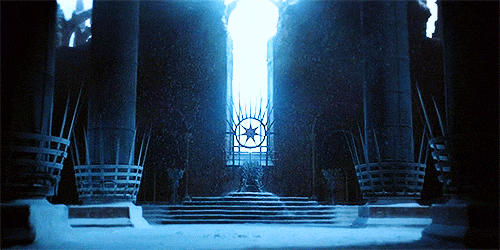Waleed Aly Explains Australia’s Deeply Broken Political Donations System On ‘The Project’
Bronwyn Bishop's helicopter ride has nothing on this level of dodginess.

Like the Zaky Mallah Q&A controversy before it, the Bronwyn Bishop helicopter scandal has stuck around way, way longer than anyone wanted it to. More than two weeks after the story originally broke and a bizarre press conference, a Prime Ministerial probation, a supremely grudging apology and a Clive-Palmer-on happy-gas video later, Bishop is still refusing to resign and the government are still refusing to make her.
Nor is it likely to die away just yet; Palmer and lower house independent Andrew Wilkie have pledged to move motions of no confidence in Bishop’s Speakership when Parliament resumes sitting on August 10. Either Tony Abbott will finally concede that Bishop has to go at some point, or Bishop will outsmart us all by turning to obsidian in the Speaker’s chair and presiding there forever, a grim and hoary statue on the throne of a desolate kingdom, gazing over her domain with stony eyes long after the world ends and the cold winds of the Eternal Night blow through Parliament’s ruined halls.

Kind of like this, I guess?
But while we’re waiting for that to happen, we may as well get something out of all this by looking at just how screwed Australia’s political donations laws are. Unlike in places like the US, where political parties and campaigns have to report the donations they receive in real-time (or close to it), Australian parties only have to disclose donations to the Australian Electoral Commission by the end of the financial year in which they were made. Think of it like this: if you made a big donation to a political party tomorrow, you and the party wouldn’t have to tell the AEC until June 30, 2016.
The AEC do the best they can to make party donations accessible and transparent, releasing comprehensive and easy-to-understand databases of party donations yearly. But those databases take months to compile, meaning that your donation tomorrow would only become public knowledge in about February 2017.
Making things worse is the fact that the threshold at which donations have to be declared is a princely $13,000. Labor voluntarily declare all donations of $1,000 or more, but the Liberals only adhere to the letter of the law, meaning that all donations to the Coalition under $13,000 don’t get reported at all. And because each party has separate registered entities in every state and territory, wealthy people and companies looking to buy influence could be quietly donating north of $100,000 to a party without anyone knowing about it.
Bishop’s aerial escapades have attracted headlines and the periodic outrage that flares up whenever a politician is deemed to be rorting the public, but Australia’s culture of silence and obfuscation around political donations is an endemic problem, stretching back years and engulfing political parties and governments of all stripes; most recently it’s raised questions about donations Clubs NSW gave to then-Shadow Social Services Minister Kevin Andrews before the 2013 election.
Despite incidents like that entrenching perceptions of corruption and general dodginess, and even with widespread support for reform among non-government politicians and parties, the government is so far refusing to countenance the idea of making the political donations process more transparent, ruling out reforms proposed by Labor over the weekend. To gently lean on Coalition MPs in the hope of preventing more Bronwyn-style nonsense in the future, The Project‘s Waleed Aly took the government to task last night.